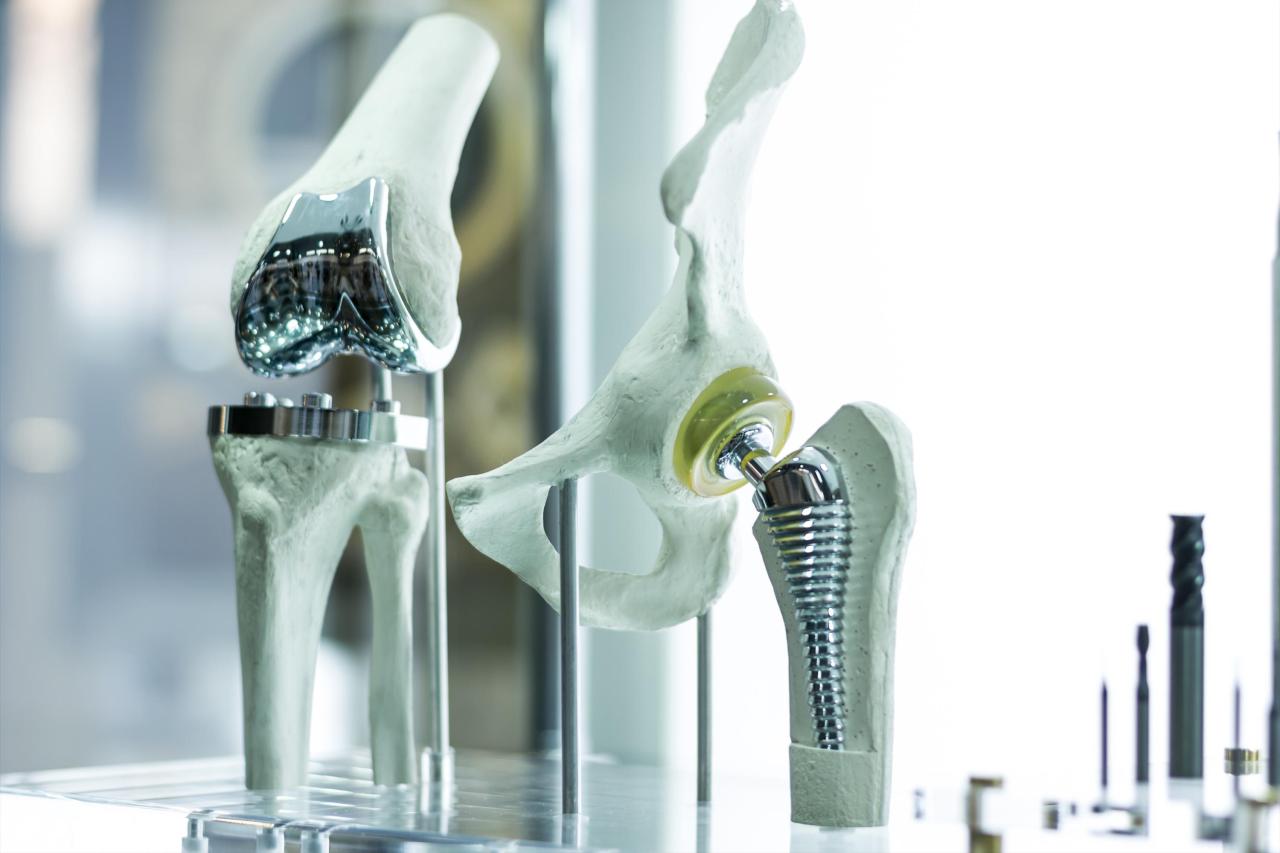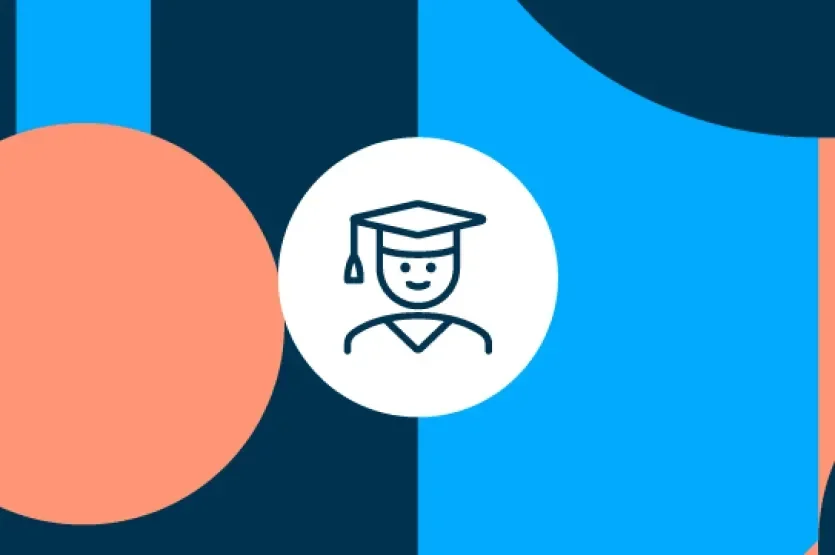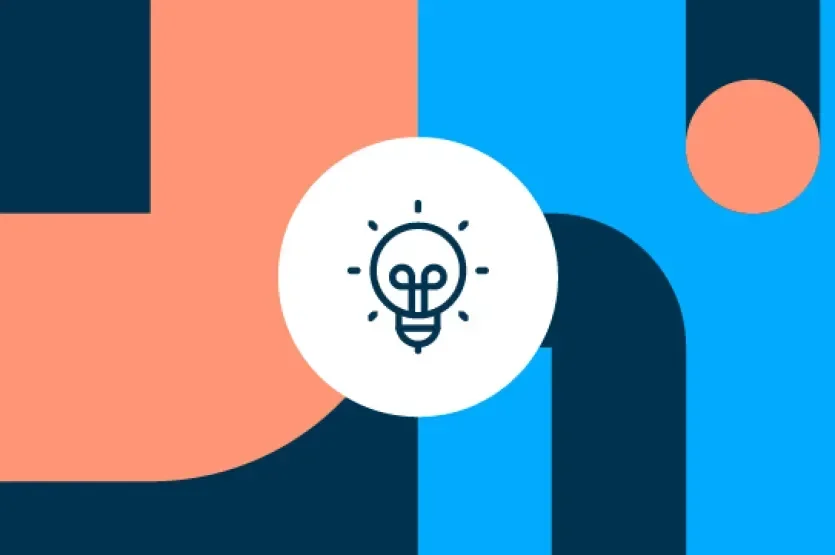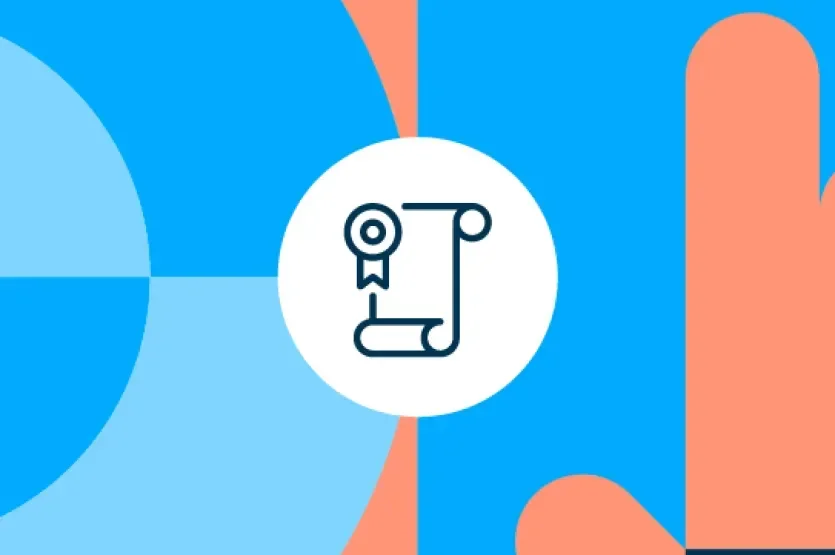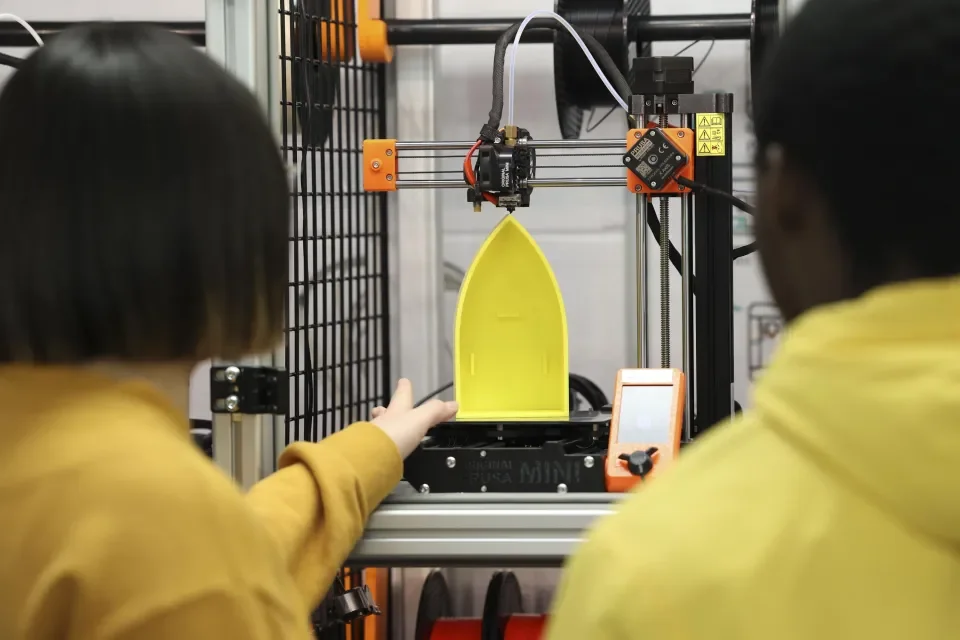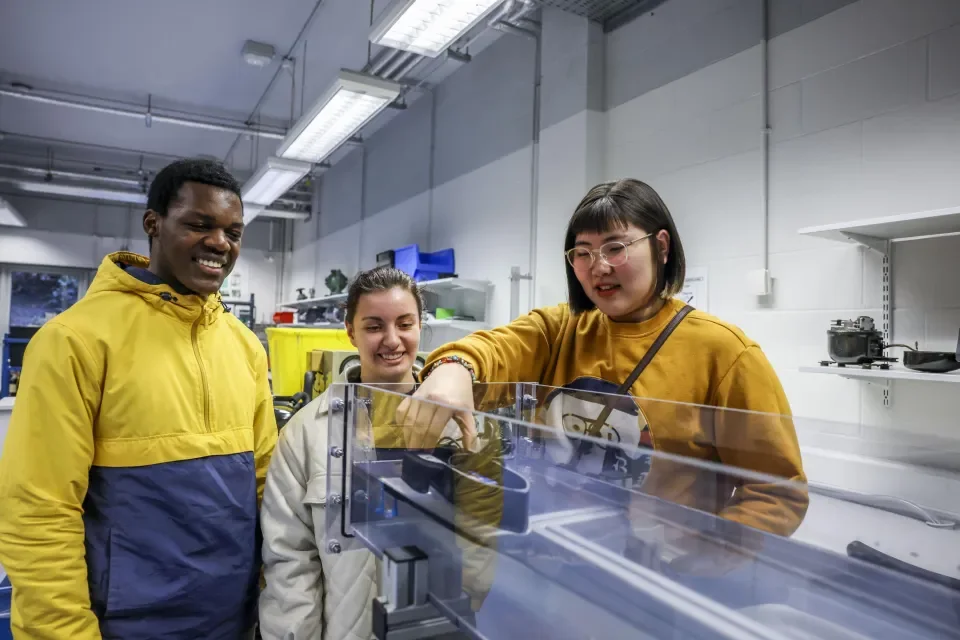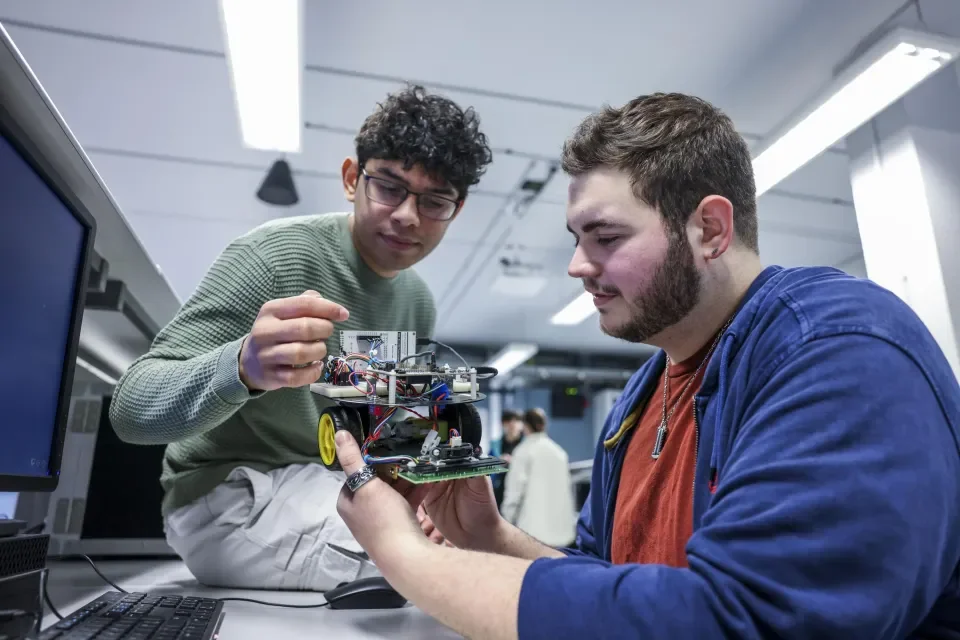Overview
When you study Biomedical Engineering, you not only learn how the body works and becomes injured, but you come to understand how medical devices are developed to treat injuries and disease, and how we can help the body heal itself. You’ll use state-of-the-art labs and tools such as 3D simulations and machine learning as you study.
Make a real difference
If you’re creative, analytical, inquisitive, and innovative, and keen to work in a fast-growing field with real human impact, this could be the course for you. You’ll get biological and medical knowledge, and technical engineering expertise, so you can solve problems in biomedicine. You’ll study advanced biology, biomaterials, biomechanics, tissue engineering, medical device design, surgical technology, rehabilitation engineering and much more besides.
In third year, you’ll do a 6-to-10-month INTRA work placement to put what you’ve learned into practice. And you can also opt to study abroad. Both the healthcare and medical devices industry have strong demand for qualified graduate engineers. Typically, our graduates end up working as biomedical engineers, consultants, research and development engineers or data scientists.
Why DCU
DCU People

My name is Megan and I’m a 5th year Masters Student in Biomedical Engineering.
Read more about Megan Shanny Doyle
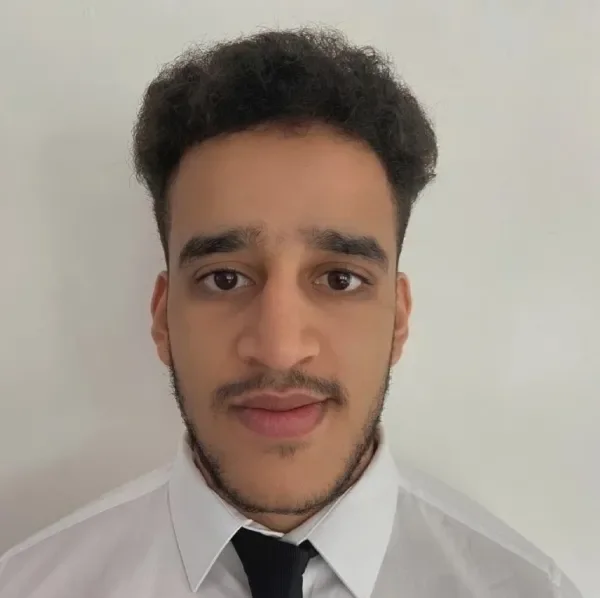
I chose this course because during the first year of common engineering, the modules linked to it interested me the most.
Read more about Ahmed Saber Taha
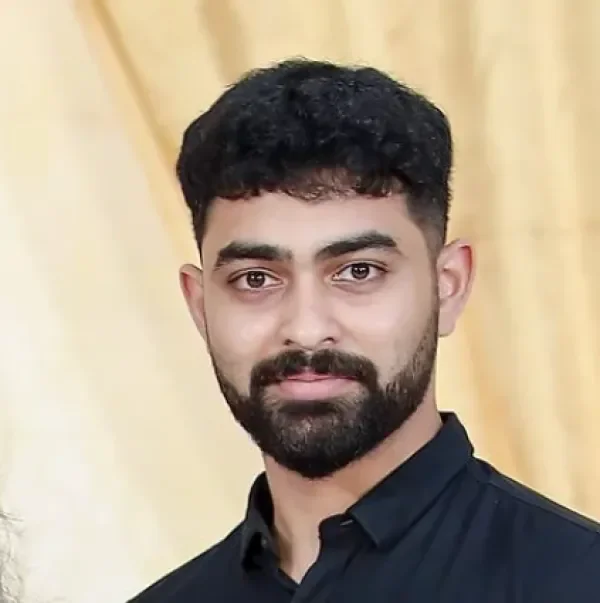
I chose Biomedical Engineering for its versatile career opportunities and the chance to explore various sectors within engineering. The course exceeded my expectatio
Read more about Angelo Eluvathingal
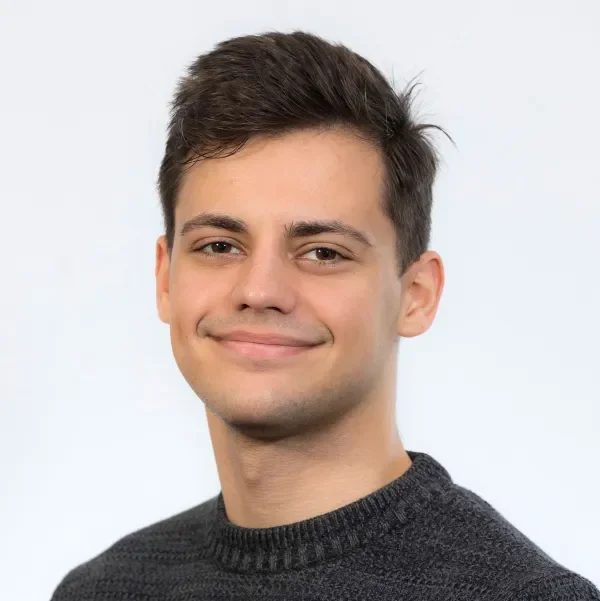
I chose this course because during the common first year of engineering, the subjects linked to it interested me the most.
Read more about Danail Pavlov Tsanov
Careers & Further Options
Careers
With the strong state of the Irish industrial sector and DCU’s active connections with the medical sector, Biomedical Engineering students can feel confident about their job prospects. The increasing harmonisation of European standards and US regulations also ensures that graduates will be employable worldwide.
Our Engineering degree programmes have international recognition through agreements with Engineers Ireland. This enables graduates to practice as professional engineers in many countries, both in the EU and in the signatory countries to the Washington Accord.
Current signatories to the Washington Accord include: United States, Canada, Australia, China, Russia, India, Indonesia, Pakistan, Bangladesh, Philippines, Malaysia, Turkey, South Africa, Japan, Mexico, New Zealand, Singapore, Sri Lanka, Ireland, United Kingdom, Costa Rica, Hong Kong China, Chinese Taipei, Peru, Korea.
Integrated Masters
This course also includes the option to study an integrated masters. The integrated masters provides students with the option to do one additional year of their studies, lengthen their INTRA work experience placement, and graduate with a master’s degree.
- Healthcare Industry
- Medical Device Companies
"DCU graduates are highly sought after by employers. Our Graduates work in environments ranging from large multinationals to SMEs, family businesses and start-ups across every sector.
DCU Careers Service has a number of learning and development initiatives in place for our students, giving them the skills they need for a successful career path."
Go to our Careers Service site to find out more about career planning, our mentorship programme, skills development and online resources for students when working on CVs and making applications.
Entry Requirements
In addition to the general entry requirements for admission to the university the following entry requirements apply
Minimum of H4 Mathematics or H4 Applied Mathematics with H5 Mathematics
In addition to the general entry requirements for admission to the university the following entry requirements apply
GCE A Level C Mathematics
Please visit our Admissions webpage for details on course requirements or how to apply to DCU.
Please visit our QQI FET webpage for details on DCU courses, open days, campus tours or school visits.
To apply to DCU, please visit www.cao.ie.
Mature entry is a competitive process and applicants must demonstrate:
o a genuine interest in the subject area/programme(s) they are applying for
o academic experience and/or evidence of competency in their chosen field of study
o an ability to engage and succeed in the subject area/programme
All applicants must complete a statement of interest to be considered for the mature application route.
For further guidance on the mature application process please see the CAO Website
Additional Criteria
This programme requires evidence of competency in mathematics, which would equate to a H4 in mathematics or H4 in applied mathematics with H5 in mathematics. This requirement is essential for this programme. Applicants can show their strength in this through formal examinations e.g. school leaving examinations, QQI-FET, access programmes or other third level qualifications. If applicants do not have any relevant examinations, they may be able to meet the requirements through their work and life experience, applicants must give examples of this experience to demonstrate their competency in these areas in their personal statement.
Applicants that have completed at least one year of study at NFQ Level 7 or 8 at another institution may apply to continue their studies on a similar programme at DCU. There should be substantial overlap in content between the two programmes to be considered for a transfer. Results and other supporting documentation must be submitted to CAO by the closing date of 1st July. This is a competitive application process for a small quota of advanced entry places. Offers are made on a rolling basis until all places are filled. Early application is advised. Please note: Applicants should also consider applying through the appropriate route for first year entry to the programme they are interested in. This application process is only for advanced entry.
Additional Criteria
Priority will be given to applicants with performance above the levels indicated and to applicants who demonstrate a high level of competency in mathematics/applied mathematics. An interview may be required.
For applicants holding a compatible Level 7 qualification or equivalent, the minimum standards for application are:
Second Year: Minimum Second Class Honours or equivalent.
Third Year: Minimum First Class Honours or equivalent.
Applicants currently completing a compatible Level 8 programme in another HEI can apply for entry into Second Year if they meet one of the following conditions:
- Successful completion of 1 year of a highly compatible Level 8 programme achieving a minimum of Second Class Honours (or equivalent grade)
or
- Successful completion of 2 years of a compatible Level 8 programme in another HEI achieving a minimum Second Class Honours (or equivalent grade).
Applicants currently completing a compatible Level 8 programme in another HEI can apply for entry into Third Year if they meet one of the following conditions:
- Successful completion of 2 years of a highly compatible Level 8 programme achieving a minimum Second Class Honours (or equivalent grade)
or
- Successful completion of 3 years of a compatible Level 8 programme in another HEI achieving a minimum Second Class Honours (or equivalent grade).
International candidates are expected to have educational qualifications of a standard equivalent to those outlined above. In addition, where such candidates are non-native speakers of the English language they must satisfy the university of their competency in the English language. Click here for further information on international applications.
Course Structure
- Professional Development
- Project & Technical Drawing
- Software Development
- Mechanics-Statics
- Electronics
- Numerical Problem Solving
- Materials Engineering
- Engineering Mathematics
- Basic Sciences for Engineering
- How life works
- Circuits
- Engineering Mathematics
- Mechanics of Machines
- Thermodynamics
- Strength of Materials
- Design and Solid Modelling
- Thermofluid Mechanics
- Human Movement
- Anatomy and Physiology
- Immunology & Cell Biology
- Mechanics of Machines
- Measurement & Signal Processing
- Product Design
- Fundamentals of Control
- Manufacturing
- Product Development
- Data Analytics
- Intra Work Placement (6 -10 months)
- Image Processing
- Biomaterials
- Finite Element Analysis
- Heat Transfer and Fluid Mechanics
- Operations Research Methods
- Rehabilitation Engineering
- Surgical Device Technology
- 4th Year Project
Fees and Funding
Fees
How To Apply
Apply through the Central Applications Office (CAO) by 1st February or 1st May
Applications are now closed for September 2025 entry.
All mature applicants apply through the CAO by 1st February. For further information and for special application procedures for mature students, please click here
Applications are made via the CAO Advanced Entry route which will open on the 5th November to 1st July.
Please see Application Procedures or E-mail ugadmissions@dcu.ie.
Candidates required to apply through the CAO can apply online at www.cao.ie
Life On Campus
At DCU, our students can expect a unique campus experience. We are known for our excellent teaching and learning facilities, our active clubs and societies, and our great social and sporting facilities. All this makes DCU an exciting place to be.
DCU has three academic campuses; Glasnevin, St. Patrick’s and All Hallows (both in Drumcondra), all close to Dublin City centre.
They can be reached by public transport, Dublin Bus and Bus Éireann, with our Drumcondra campuses a ten minute walk from Drumcondra Train Station. Glasnevin is a 20 minute walk from St Patrick’s and All Hallows. They are also linked by Dublin Bus.
Each campus has a library (O’Reilly, Cregan and Woodlock Hall), study spaces, restaurants, and on-campus residencies. There are sports facilities on Glasnevin and St. Patrick’s, and there is a dedicated sports campus, St Claire’s, located near Glasnevin on the Ballymun Road.
DCU’s 19,000 students have access to exceptional teaching and learning facilities across our three academic campuses.
These include modern learning theatres, research centres, a new media and TV studio, radio/podcast studios, computer suites and advanced labs in the areas of Languages, Engineering, Physics, Chemistry and Biotechnology, as well as a Sports Performance centre and a training hospital ward. In 2021, we opened our first virtual reality ‘Leadership Lab’, which is located in our Business School.
We continue to improve and update our facilities. For example, construction of a new world-class STEM facility is underway on the Glasnevin campus. With capacity for an extra 3,000 STEM students, this facility will advance DCU’s international reputation for excellence in science and health, computing and engineering disciplines.
Studying in DCU isn’t just about course work. The university is rich in student life and activities.
There are more than 140 clubs and societies for students in DCU, with ‘Clubs & Socs’ days taking place on both the Glasnevin and Drumcondra campuses at the start of the academic year. They span everything from rugby to rock climbing, anime to jazz.
For many students, sport is an important part of the DCU experience. DCU’s Sports Complex boasts a 25 metre swimming pool, fitness centre gym, all-weather pitches and squash courts, as well as soccer, GAA and rugby pitches. DCU Dóchas Éireann, the university’s GAA club, is the largest third level Gaelic Games club in the country. Meanwhile, DCU Athletics has been Ireland’s highest achieving university club for many years. And DCU has dozens of other clubs to get involved in, from Archery to Weightlifting.
The Glasnevin campus is home to our purpose built, state-of-the-art student centre, The U, which serves the needs of a rapidly growing student body. Here, you will find the Student Leadership and Lifeskills Centre, performing arts and cultural spaces for students and the wider community, and the Entrepreneurship and Innovation Hub. Also located on our Glasnevin campus is The Helix, our renowned performing arts centre.
On our St Patrick’s campus, we have the Java Student Hub, a vibrant, warm and welcoming space where students can meet for coffee, play music, use the projector to watch events, or just relax. The walls of the Java Hub were designed based on the cultural history of St Patrick’s Campus, including the special references to the notable sporting history and history of the arts.
We have a number of academic, professional and social supports for students.
Student Advice & Learning Skills Centre - Offers a wide range of supports and services to students and advice
The Writing Centre - drop-in writing workshops for students through the academic year
Maths Learning Centre - provides maths support for students of all ability levels with maths modules
Student Learning - facilitate the transition from passive to active learning for students at DCU, by teaching study skills, nurturing critical thinking and building student confidence.
Careers work with students to help them on their professional journey into graduate employment.
Our student support team offers a comprehensive support programme, helping students make that all important transition into university life and focusing on building confidence and skills which are key to success at third level.

DCU Glasnevin Campus
FAQs
I am interested in studying Biomedical Engineering, but I am not sure. If I go into common Entry Engineering, am I guaranteed to get my favourite discipline at the end of first year?
To date, we have had sufficient places in all of our programmes to be able to accommodate all students on their preferred programmes. If this isn't possible we will allocate students their 2nd choice. However, If you know you are interested in Biomedical Engineering you should apply for Biomedical Engineering as your first choice on the CAO to guarantee your place on the programme in second year (should there be too many students who choose Biomedical Engineering).
If you choose Biomedical Engineering as your first choice on the CAO and after year one you feel it is not for you, you can move into one of the other engineering courses.
All of our Engineering courses are 4-year programmes. It is also worth noting, that we have an integrated 5th-year option. Our integrated degree allows students to lengthen their paid work experience, complete one final year project and graduate with a masters degree (a necessary requirement to become a chartered engineer). Students can transfer into our 5-year programme in year 3.
Should I study Biomedical Engineering or Physics with Biomedical Sciences?
Biomedical science and biomedical engineering share a common foundation of knowledge in biology. Students on both courses develop an intensive understanding of the complexities of the human body. Biomedical engineering focuses on creating devices and tools that improve people’s health. Biomedical science is the study of the life sciences areas such as stem cell biology, virology, molecular genetics, cellular biology, structural biology, developing a deeper understanding of how these areas function.
Within Biomedical Engineering you will study how devices are made, what materials to use, how to programme them and how they improve a patient’s life. This is a very exciting rapidly expanding area and Ireland has a lot of companies working in this space. Many of our students get a 3rd year placement with Biomedical companies.
I was wondering do you have an extra Maths exam for entry to Biomedical Engineering for Leaving Cert students who do not score a H4
We do not offer an extra Maths exam, you need to meet the DCU and Biomedical Engineering entry requirements. In addition to the general entry requirements for admission to the university, the following entry requirements apply: Minimum of H4 Mathematics or H4 Applied Mathematics with H5 Mathematics.
I am interested in a career in sustainability. Does DCU offer any engineering modules in sustainability?
There are a number of modules in first year and second year where sustainability and energy systems are introduced and discussed. Our INTRA work placement gives students the option to apply for a period of work with companies in the sustainability, energy and transport areas. Students in their final year can develop their thesis in sustainability, energy and transport areas.
DCU also offers a BEng in Mechanical and Sustainability Engineering for students who care deeply about the environment, but would also like to finish university as a mechanical engineer with additional skills in sustainability.
I don’t study Engineering for the Leaving Cert, would this put me at a disadvantage to the other people in the course?
No, you do not need engineering for the Leaving Cert and you will not be at any disadvantage. Any skills from the Leaving Cert engineering course that are required on the programme will be covered in the first year.
How many hours a week would you generally spend in lectures for the Engineering courses?
The Engineering programmes are busy and focused. Our students spend 25 - 35 hours a week on the Glasnevin campus (Monday – Friday) attending a combination of lectures, lab work and tutorials and working on their projects.
I am interested in studying Engineering and was wondering which courses have a work placement module?
All of our Engineering courses have a paid work placement of at least 6 months (10 months if you are doing the five-year integrated master's degree).
Work placement commences in third year and constitutes an important part of the programme of study. You will liaise with our INTRA office to organise a suitable placement for you that fits within the programme you are studying. In the past, many students have been hired by their work placement companies after they have graduated. It is a wonderful learning experience and gives students the opportunity to put their learning into practice.
Is the Maths in Engineering similar to the Maths for higher level Leaving Cert?
First-year Maths builds on Leaving Cert higher level Maths and then more advanced topics are covered in subsequent years. That said, you will have degree options available to you with different levels of Maths content, so you can choose whatever suits you best.
DCU has a Maths Learning Centre on campus for those students who need help working through mathematical problems; it is free of charge and provides great support to students struggling with this subject.
Is DCU all one campus?
DCU is a multi campus university - the Glasnevin, St Patrick's and All Hallows campuses. The St Patrick's campus is where the Education courses are taught and some of the subjects from the BA Joint Honours degree. There is a 20-25 minute walk between the campuses but there are buses and bikes available to go between them also.
Click here to see maps of all of our campuses
If I'm studying on the St Patrick's campus, can I use the library and sports centre on the Glasnevin campus?
Yes, all facilities such as sports and accommodation are open for all DCU students to avail of.
Are there libraries in DCU and if they have wifi and work stations?
We have a brand new state of the art four floor library on our St. Patrick's Campus which complements the existing library on the Glasnevin campus. There is free wifi, work stations as well as desktop computers.
Does DCU provide accommodation?
DCU does have on-campus accommodation for undergraduate and postgraduate students, and you can find out more and apply via the Accommodation Office webpage.

